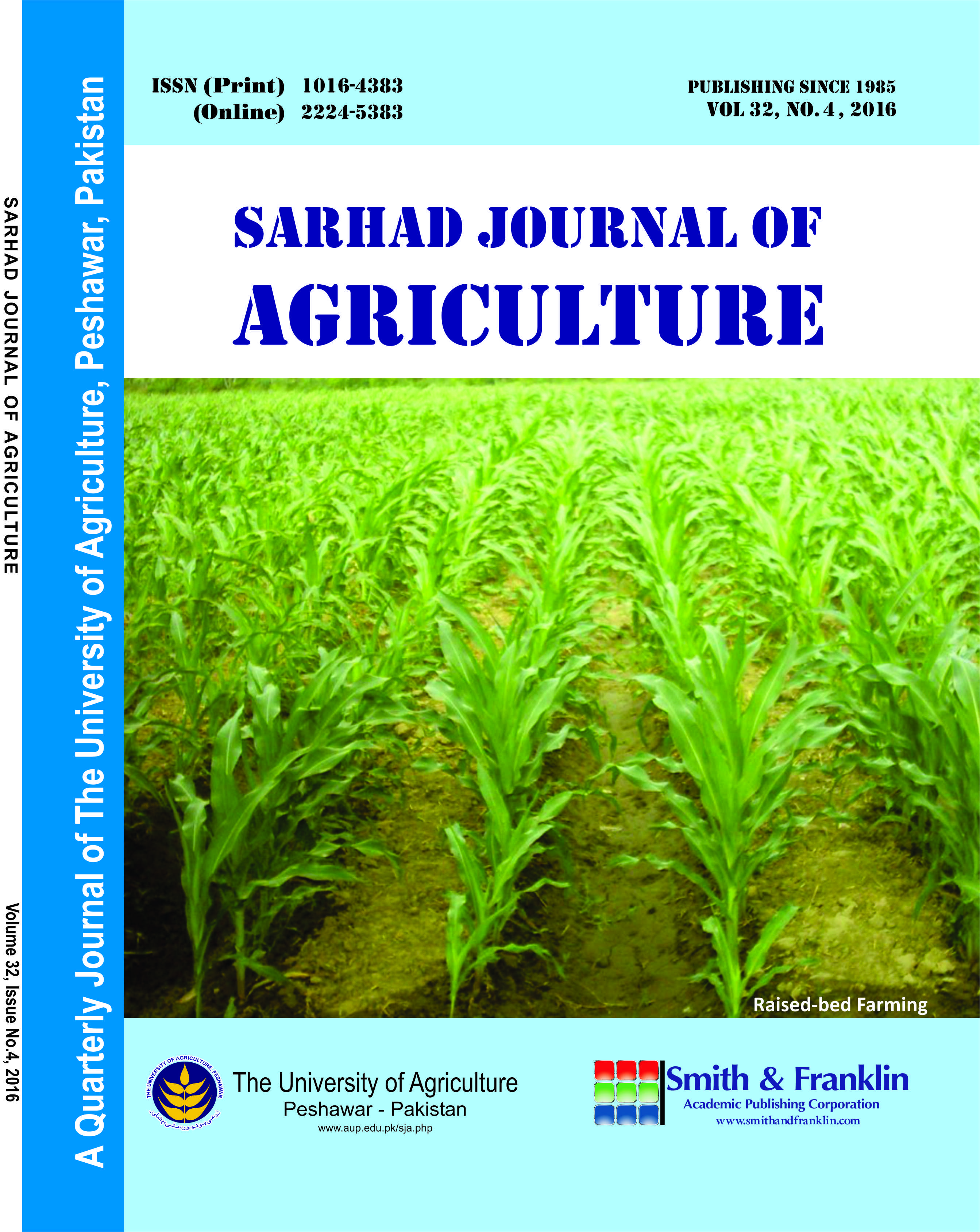Rice Residues Management Practices in Punjab: Effects on Wheat Yield and Soil Health
Rice Residues Management Practices in Punjab: Effects on Wheat Yield and Soil Health
Ammara Khan1, Khalid Mehmood1,2*, Ali Raza1, Ishtiaq Hassan3 and Ayesha Sultana4,5
ABSTRACT
Rice-wheat cropping system is a major system in agriculture of Pakistan. Conventional practice of residues-burning has been greatly discouraged in the wake of ongoing environmental challenges. When rice crop precedes wheat sowing in same fields, the farmers are elicited to burn the rice residues for urgent land preparation which poses multiple threats to soil characteristics. This study investigates the effects of different rice-residues management practices on wheat productivity and soil health. Field trials were conducted for a period of two consecutive years (2021-22 and 2022-23) to compare the effects of eco-friendly rice-residues management practices with the unappealing conventional practice of residues burning on yield performance of wheat crop. Results reveal the highest average wheat grain yield by residues incorporation practice (4366 kg/ha) followed by zero tillage practice (4289 kg/ha) and then conventional residues-burning practice (4047 kg/ha), respectively. Similarly, greater germination count, number of productive tillers and grains per spike were observed using residues incorporation and zero tillage practices as compared to other practices. Pertaining to soil health effects, the residues incorporation and zero tillage significantly contributed to soil phosphorus (by 0.02-0.03 ppm), potassium (by 5 ppm) and organic matter (by 0.02%). Contrarily, the residues burning practice reduced the soil potassium (by 1 ppm) and organic matter (by 0.01%). The empirical findings conclude that eco-friendly practices can perform at least equally to or better than conventional practice of crop-residues burning in terms of soil health and yield of subsequent wheat crop. The study findings discourage the residues burning, and advocate the adoption of residues incorporation or zero tillage for wheat sowing followed by rice crop in order to economize agricultural production, conserve nature and minimize environmental hazards including soil degradation and smog problems.
To share on other social networks, click on any share button. What are these?








